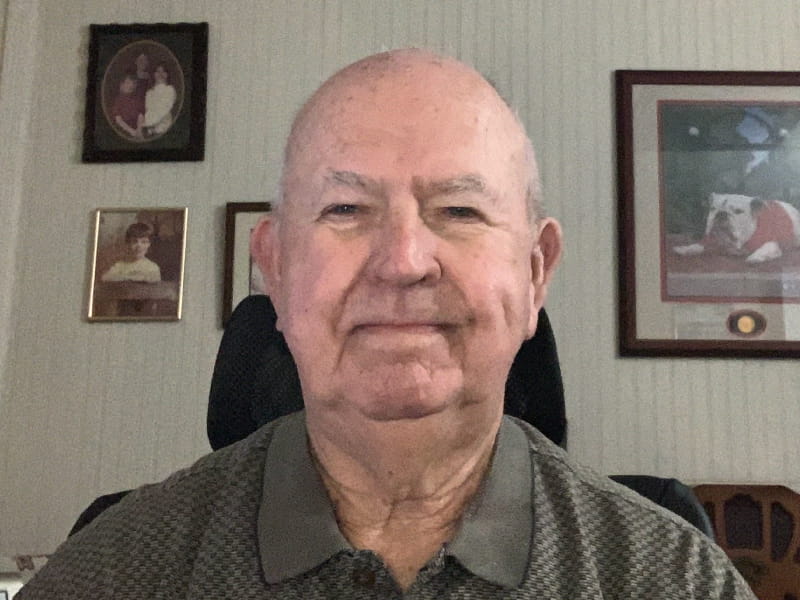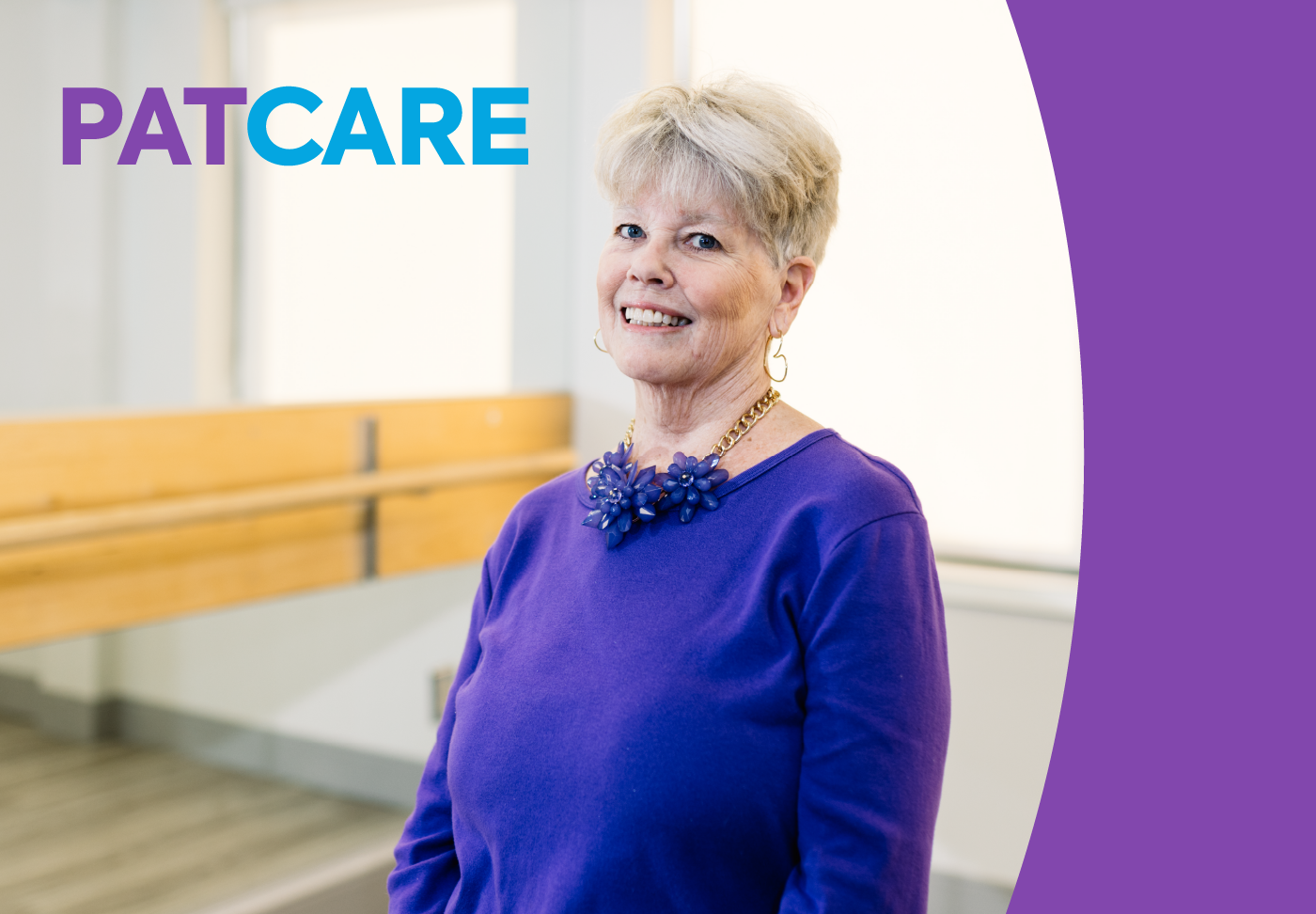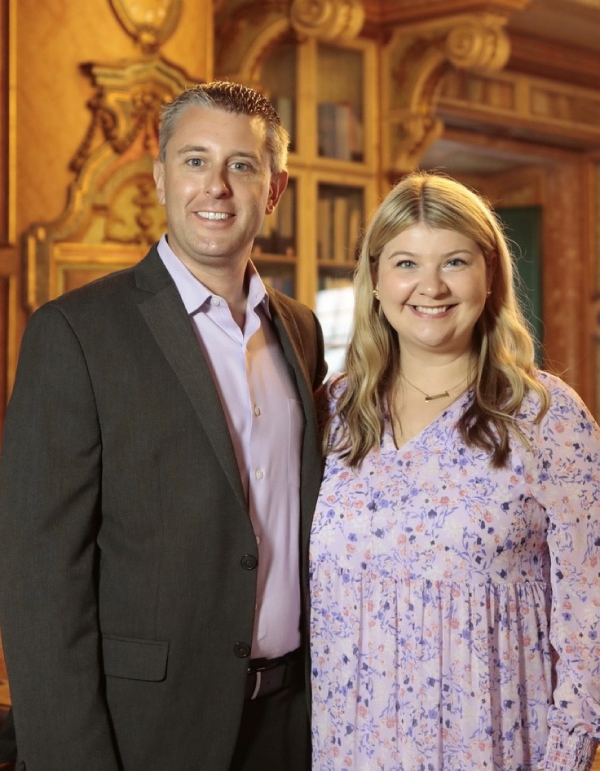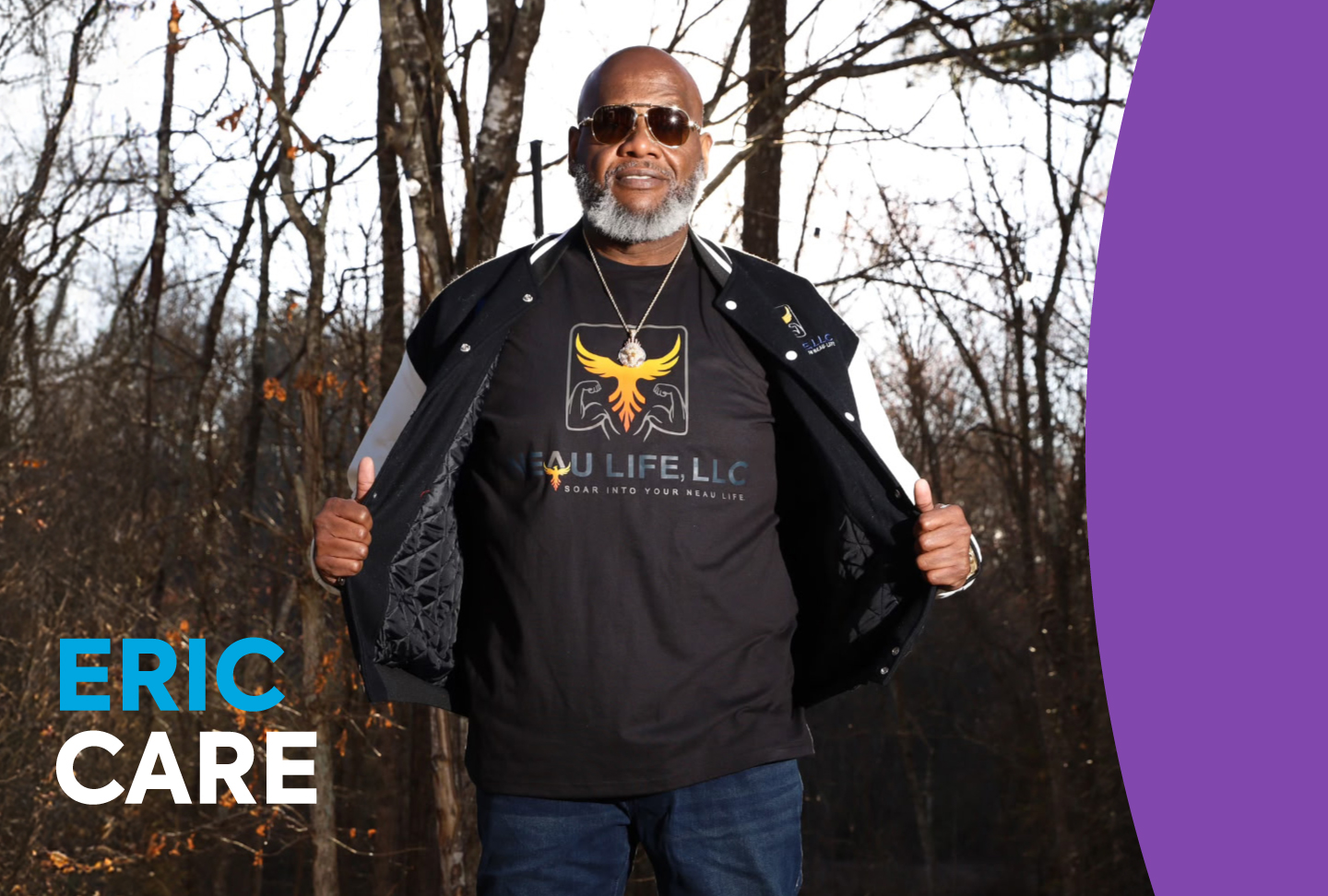
RichardCare
How an active retiree beat colon cancer with screening and the support of his Wellstar care team
Published on March 27, 2025
Last updated 01:55 PM March 27, 2025


If you start noticing something is different—[that] a normal process of your body changes—you need to understand why. That’s what happened to me, and I was fortunate to get my appointment with Dr. Renelus.
- Richard Knox
Colon Cancer Survivor
Tags
Vinings Health Park Cobb Medical Center Roderick Harding RhyantBenjamin Dwight Renelus Anushka Vavitra Arumugasaamy William Lee Forehand III PeopleCare
Related Articles

PeopleCare
PatCare
Pat Gelisse has been dancing for 30 years. She even taught the Carolina shag for a while. It’s a partner dance, sometimes compared to Swing dancing to beach music.
But severe heart failure downgraded Pat’s dancing queen status for close to 10 years.
“I went from feeling happy to feeling like a nothing,” she remembered of that time in her life.
With a team of Wellstar heart specialists working together for her, Pat found hope and new life on the dance floor.
Heart failure masquerades as acid reflux
It started more than a decade ago when Pat lived in central Georgia. She scheduled a doctor’s appointment for what she thought was acid reflux. She popped in on a quick break from her marketing job, assuming it wouldn’t take long.
Blood work and an EKG got Pat a ticket straight to the hospital and a quadruple bypass.
“My heart got worse; it wasn’t pumping blood,” Pat said.
She was in acute heart failure, a life-threatening condition where the heart doesn’t pump well enough to deliver the necessary amount of oxygen to her body. Pat’s ejection fraction (EF)—the percentage measurement of the blood that leaves the heart each time it pumps—was only 10%. The normal range is 50 to 70%.
It was a scary time, and with a family history of heart problems, Pat was worried. She’d lost both parents to heart failure, as well as other family members.
“I just knew for sure I was going to be next,” said Pat.
Doctors from various academic institutions discussed serious treatments ranging from LVAD to transplant, but because the pumping performance of her heart improved, she was no longer a candidate for those procedures. Instead, Pat spent close to nine years managing her heart failure with a pacemaker and various medications—treatments that failed to get her back on the dance floor.

PeopleCare
KevinCare
There aren’t many people out there who can say they survived cardiac arrest at 30. Kevin Miskewicz can.
According to the American Heart Association, more than 90% of people who experience an out-of-hospital cardiac arrest die. Those who survive often have permanent neurological disabilities. But Kevin’s story has an incredibly fortunate ending, thanks to the highly coordinated work of his medical experts at Wellstar.
Recovering from cardiac arrest is something Kevin will never forget. It lives forever as a piece of his health history—one that includes a dedicated healthcare team—and his wife, who was the first to save his life.

CPR to the rescue
Kevin woke up on Labor Day 2017 at 5:30 AM to take the dog out. Pausing to adjust the thermostat as he came in, he fell, knocking over a lamp.
He was in cardiac arrest.
With no symptoms and no known pre-existing condition, this was unexpected, but that didn’t stop his wife, Andrea, from jumping into action.
“If it weren’t for me knocking over a lamp when I passed out,” said Kevin, “she would have never woken up and saved my life.”
In addition to calling 911 and unlocking the door for the paramedics, Andrea performed CPR for 10 minutes.
“Kevin’s wife doing good CPR was critical,” said Dr. Arthur Reitman, the interventional cardiologist who was a vital part of Kevin’s treatment team at Wellstar Kennestone Regional Medical Center. “More than five minutes of poor blood flow to the brain can result in permanent irreparable injury from which a patient is unable to recover.”
Coordinating multidisciplinary care to save a life
When paramedics arrived at Kevin’s home, he had no pulse and was not breathing. As the paramedics performed their lifesaving work, he technically died two times.
The ambulance took him to Wellstar North Fulton Medical Center, where he was initially assessed and treated by Dr. David Jacoboff. The interventional cardiologist implanted an intra-aortic balloon pump to stabilize him. Then, he transferred Kevin to Wellstar Kennestone for highly specialized heart care.
When Kevin arrived at Wellstar Kennestone by helicopter, his heart function wasn’t strong enough to support his body. Dr. Reitman and a team of doctors including a cardiologist, a pulmonologist and critical care doctors worked in tandem to put Kevin on an advanced life support system called veno-arterial extracorporeal membrane oxygenation. Better known as VA-ECMO, it took the heart “offline” so it could heal. The technology removed unoxygenated blood from his body, oxygenated it and pumped it back in for the next three days.
“Very few places in the state—only four or five hospitals—have the technology and specialized training to put a patient on ECMO,” Dr. Reitman explained.

PeopleCare
EricCare
Eric Janeau, a former All-American offensive tackle who once played football at Kansas State University and Western Illinois University and trained with the Detroit Lions, faced a host of serious health conditions—a rare form of bile duct cancer, obesity, heart failure, kidney disease and diabetes. With the support of his tight-knit network of doctors and the Wellstar Center for Best Health, Eric is overcoming these obstacles and inspiring others through his remarkable weight loss journey.
Life change kickoff: A rare cancer diagnosis
In 2021, Eric was diagnosed with a rare and aggressive bile duct cancer.
“I was in disbelief,” Eric remembered. “I didn’t eat all weekend.”
The only cure was surgery, but at 11 centimeters, the tumor was too large to be removed. Under the care of Medical Oncologist Dr. Carmen Klass, Eric began chemotherapy. At the time, he didn’t realize just how dismal his chances were for survival. At stage 4, the survival rate for this cancer type is 1%, with only four to six months to live if treatment isn’t successful.
Eric began chemotherapy accompanied by additional hydration to help with his heart failure and steroid shots that caused him to gain weight during treatment. After 12 rounds and six cycles of chemo, his body responded excellently—the mass shrunk by 40%. Surgical Oncologist Dr. Sahir Shroff re-evaluated him and cleared him for surgery to remove the tumor in early 2022.
Today, Eric is cancer free.
One team, one goal: Eric’s health comeback
Eric’s journey didn’t end with cancer treatment. He also faced severe obesity, putting him at risk for life-threatening conditions like heart disease and stroke. Dr. Klass was concerned and took the time to address Eric’s other health concerns.
“Dr. Klass and Dr. Shroff keep up with my health and they keep each other informed of what’s going on,” Eric said. “They're totally invested in my well-being.”
After chemotherapy and surgery to remove the tumor, Dr. Klass referred Eric to Dr. Mitzi Rubin at Wellstar Center for Best Health. It was time to lose weight and get his diabetes and high blood pressure in check.
We use cookies for booking and general analytics. Learn more about or internet privacy policy.
